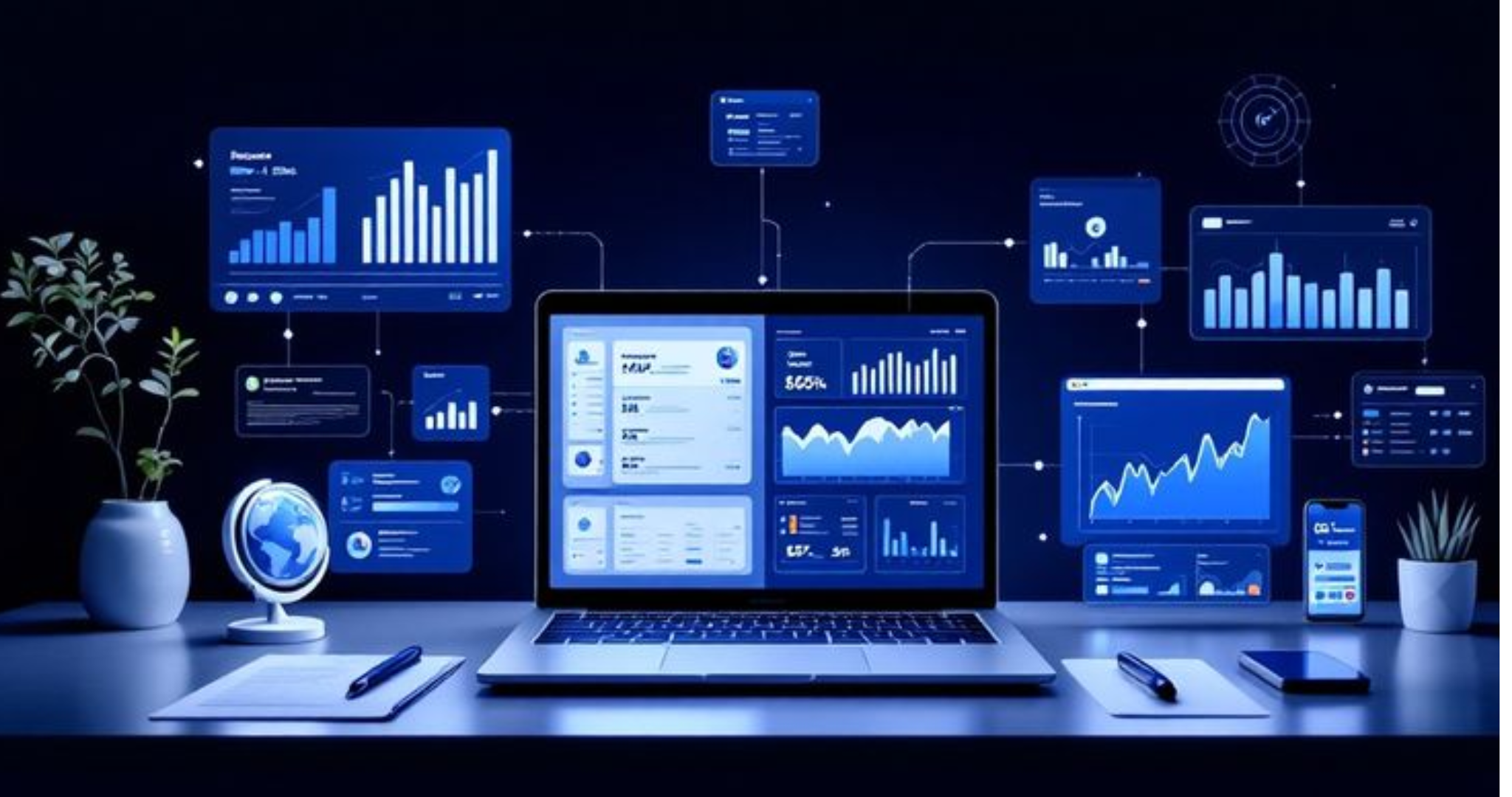In the digital age, data is often hailed as the new “gold,” serving as the foundation for all business decisions, market research, and trend analysis. Web data collection (web scraping) has become a powerful tool for tapping into this vast resource of information. However, the journey of “mining” the internet is not always smooth. Websites are increasingly sophisticated in detecting and preventing automated data collection activities. This is where IP Rotating Proxies become an invisible yet crucial “shield,” helping data collectors overcome obstacles and extract information effectively.

What are IP Rotating Proxies?
To understand the importance of IP Rotating Proxies, we first need to grasp the basic concepts of proxy servers and IP addresses. When you access the internet, your device sends requests to a web server using your unique IP address. The web server records this IP address and responds to your request.
A proxy server acts as an intermediary between your device and the web server. Instead of connecting directly to the web server, your request is forwarded through the proxy server. The web server then receives the request from the proxy server’s IP address, not your actual IP address.
An IP Rotating Proxies is a more complex proxy server system that utilizes a large network of different IP addresses. When you send multiple data collection requests, the system automatically rotates through these IP addresses. This means that each request or a small group of requests is sent from a different IP address.
Why are IP Rotating Proxies Important for Web Data Collection?
The significance of IP Rotating Proxies stems from the countermeasures that websites employ to prevent automated data collection activities (often referred to as bots or scrapers):
- Rate Limiting: Websites commonly limit the number of requests that a single IP address can send within a specific time frame. If an IP address sends too many requests in a short period, the web server may suspect bot activity and temporarily or permanently block that IP address. IP Rotating Proxies help overcome this limitation by distributing requests across numerous different IP addresses, ensuring that no single IP address sends an excessive number of requests within a short time.
- Detection and Blocking of Suspicious IP Addresses: Advanced web security systems can analyze browsing behavior. If an IP address exhibits unusual activity, such as accessing a large number of pages in a short time or following a non-human pattern, it may be flagged as suspicious and blocked. Rotating IPs makes the data collection activity appear more “natural,” making it harder to detect.
- Circumventing Geo-Restrictions and Content Blocking: Some websites may restrict access based on the user’s geographic location. For example, certain content might only be available in a specific country. IP Rotating Proxies allow you to choose IP addresses from various countries, helping you bypass these geographical restrictions and collect data from diverse sources worldwide.
- Preventing CAPTCHAs: CAPTCHA (Completely Automated Public Turing test to tell Computers and Humans Apart) is a challenge designed to distinguish between human users and bots. When an IP address is suspected of being a bot, the website may require solving a CAPTCHA before allowing further access. Constantly being prompted to solve CAPTCHAs disrupts and slows down the data collection process. IP Rotating Proxies help minimize the frequency of encountering CAPTCHAs by making requests originate from multiple different sources.
- Maintaining Anonymity: In some cases, masking your real IP address is necessary to protect privacy or avoid tracking. IP Rotating Proxies provide a layer of anonymity by concealing your actual IP address from the web servers you interact with.

Popular Types of IP Rotating Proxies:
- Data Center Proxies: These proxies have IP addresses originating from data centers. They are generally faster and less expensive but are also more easily detected by websites as proxies.
- Residential Proxies: These proxies have IP addresses assigned to real user devices (e.g., personal computers, smartphones) through Internet Service Providers (ISPs). Consequently, they are harder to detect as proxies compared to data center proxies but are typically more expensive.
- Mobile Proxies: Similar to residential proxies, but the IP addresses originate from mobile networks (4G, 5G). They are considered the most reliable and difficult to block but are also often the most expensive option.
Choosing the Right IP Rotating Proxy:
Selecting the appropriate type of IP Rotating Proxy depends on several factors, including:
- Scale and Frequency of Data Collection: If you need to collect large volumes of data at a high frequency, you may require a large and stable proxy network.
- Level of Security and Anonymity Required: If anonymity is a top priority, residential or mobile proxies might be a better choice.
- Budget: The cost of different types of proxies varies significantly.
- Data Collection Goals: The type of website you are trying to scrape will also influence the suitable proxy type. Websites with strong anti-bot measures may require “cleaner” proxies like residential or mobile proxies.

Important Considerations When Using IP Rotating Proxies:
- Proxy Quality: Not all proxy services are of good quality. Some proxies may be slow, unstable, or even “dirty” (already flagged as spam by websites). Choosing a reputable proxy provider is crucial.
- Session and Cookie Management: When using IP Rotating Proxies, careful management of sessions and cookies is necessary to avoid data loss or detection.
- Compliance with Laws and Terms of Service: Web data collection must comply with the law and the terms of service of the target website. Using proxies does not grant permission to collect any data indiscriminately.
Conclusion: IP Rotating Proxies – An Indispensable “Weapon” for Effective Web Data Collection
In an environment where websites are increasingly strengthening their defenses against automated data collection, IP Rotating Proxies have become an indispensable tool for anyone seeking to extract information from the internet effectively and sustainably. They not only help overcome technical barriers such as rate limiting and IP blocking but also enhance anonymity and the ability to access data from diverse sources worldwide. Choosing and using IP Rotating Proxies intelligently and responsibly will be key to unlocking the vast potential of web data, providing competitive advantages and valuable insights for individuals and organizations alike. This invisible “shield” is truly a powerful “weapon” in the ongoing battle for information on the internet.

Real-World Use Cases
Let’s put theory into practice. Here are common industries using rotating proxies:
| Industry | Use Case Example |
|---|---|
| E-commerce | Price comparison, stock monitoring, product reviews |
| Travel & Hospitality | Flight & hotel price scraping (via IP from target country) |
| Finance | Market sentiment analysis from news or forums |
| Marketing Agencies | SEO tracking, ad verification, brand protection |
| Real Estate | Scraping listing data for analysis or aggregation |
| Research | Academic and sentiment data gathering at scale |
Internal Link Suggestions:
-
- Read more: What is a proxy?
External Link Reference:
- Read more: What is a proxy?
